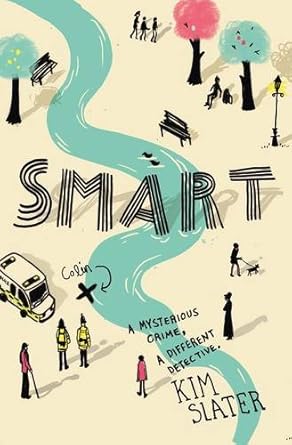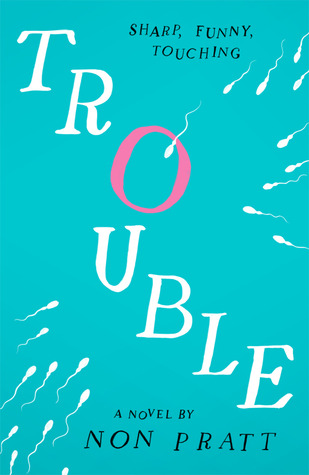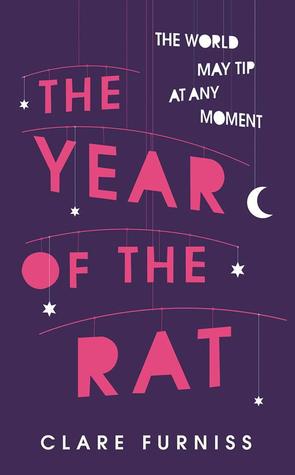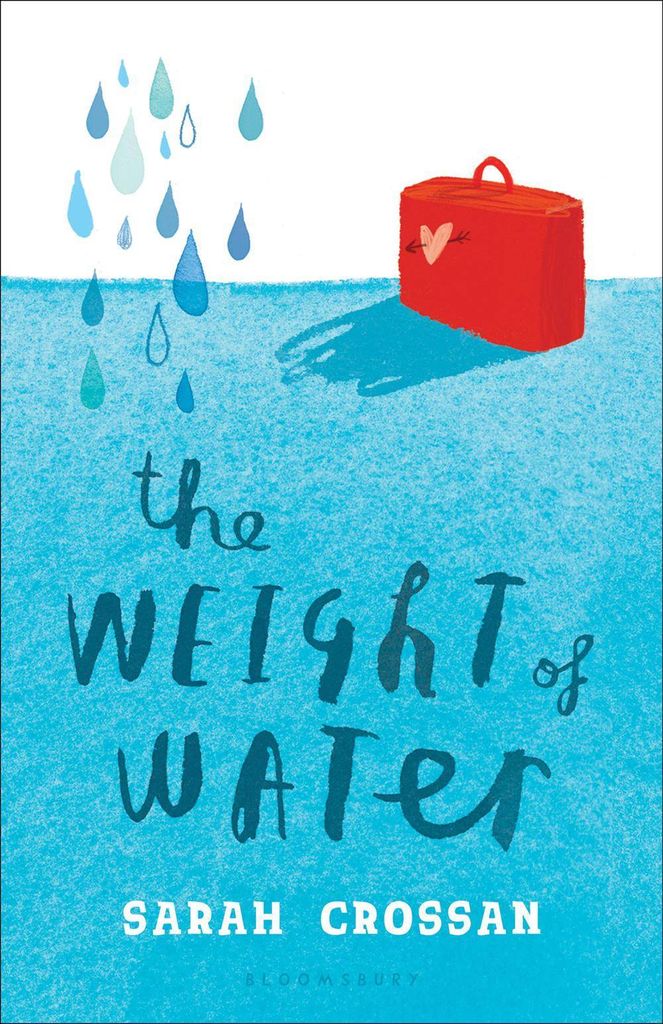I accept it's been an exponentially long time since I wrote on this blog. I had considered giving it up entirely, as I now work in a large trade publisher of children's and YA fiction, it seemed a slight conflict of interest. But more and more I can't help get annoyed at how few books are brought into the UK market from other publishers. So I'm re-starting this blog to focus purely on translated children's books.
I've mentioned in some reviews that only about 3% of all books published in the UK are translated from a different language. Every time I do read a translated work, it makes me wonder what else I am missing out on because there are so many books that haven't made it into our market.
The sad fact is, it's not that publishers don't want to publish translated books. They do - most of them would absolutely love to. But it's very expensive, and as margins in publishing continue to dwindle, books that don't make sense economically won't make it past the board. We try to make as much money from one book as possible (this money, of course, is shared with authors/illustrators), and the best way to guarantee that is through rights.
When a book is published in the UK from a UK author, the publisher will acquire certain rights (translation, film, audio, digital, etc). This gives the publisher an opportunity to increase sales and revenue on a single title for both themselves and the author. These rights deals are often the most lucrative, and it's in all parties' interest to see these rights sold. Rights sales can even make up for poor sales within the UK market, although it's unlikely for a book to do well in different markets if it can't do well in its own.
Now we come to the translated book, where a publisher is buying the rights from another market in order to publish the title. The publisher won't get all of those extra rights - they may have certain permissions from the original publisher for things like an audio or digital edition, but the money then has to be split between even more parties (original publisher, original author, original agent, English publisher, English translator...)
Economically, the translated book is a risk. You have to rely on physical sales of the book and can't back it up with any rights sales. And sadly it is these simple economies that prevent most publishers from taking a step into getting more titles translated into English.
It is my hope to one day see that 3% closer to 5%, if not higher. The fact that there were midnight queues just this week for the latest Murakami book show that there is an interest in translated fiction. Or perhaps those people didn't care it was translated - they just recognise a good author and a good story, despite it being originally written in a different language.
Transatlantic Bibliophilia
Children's Books in Translation
Sunday 17 August 2014
Monday 28 April 2014
Smart by Kim Slater
If there's one thing YA books are good at, it's trying to get people talking about things that are considered taboo. At the moment, there's a big push to get people talking more freely about mental health and ridding the stigmas that go with it. So while some people may pick up Smart and think "not another autistic kid solving crimes", you really should be thinking, "why not have another autistic kid solving crimes?" Yes, we already have The Curious Incident of the Dog in the Night-time, which I enjoyed. But it doesn't mean that there shouldn't be another book about an autistic teen discovering a mystery and trying to solve it. Especially when they're good at it.
Kieran Woods is autistic teen living in an abusive situation. His step-father and step-brother are abusive to Kieran and especially to Kieran's mother. He has no friends at school, and outside of school he only really has a homeless woman, Jean, to talk to. And when Kieran finds a body in the river and discovers it was Jean's friend, he is convinced that it is more than just an accident. Considering it's Kieran's dream to be a journalist and report on crimes, this seems like the perfect opportunity for him to prove he can solve the mystery.
With the increase of characters with mental health issues in YA literature, I wouldn't be surprised in even more characters with autism entering the scene because they are fantastically complex and have so much to offer a story. If there's anything Smart shows us, it's that even though someone may have a different way of thinking, it's not wrong and it certainly has its strengths. Kieran may have trouble understanding how to relate to other people, but he demonstrates the capacity to learn as well as being very clever and talented.
After reading Smart, I was intrigued by Kieran's ability to notice details and accurately draw them. So I did a quick Google search on autistic artists, which was fascinating. While autism is so often shown as a disability in modern society, it also appears provide some with superior abilities of memorization and noticing minute details. This is certainly the case of Kieran, and also what makes him an ideal detective in Smart. It's painful to see how Kieran is treated, but heartwarming when people realise what he is capable of and how he doesn't hold the prejudices against other people as most of us might do. Smart leaves you with the hope that this realisation will extend beyond Kieran and will soon become a part of everyday life.
Smart by Kim Slater is published on 5th June by Macmillan Children's Books.
Kieran Woods is autistic teen living in an abusive situation. His step-father and step-brother are abusive to Kieran and especially to Kieran's mother. He has no friends at school, and outside of school he only really has a homeless woman, Jean, to talk to. And when Kieran finds a body in the river and discovers it was Jean's friend, he is convinced that it is more than just an accident. Considering it's Kieran's dream to be a journalist and report on crimes, this seems like the perfect opportunity for him to prove he can solve the mystery.
With the increase of characters with mental health issues in YA literature, I wouldn't be surprised in even more characters with autism entering the scene because they are fantastically complex and have so much to offer a story. If there's anything Smart shows us, it's that even though someone may have a different way of thinking, it's not wrong and it certainly has its strengths. Kieran may have trouble understanding how to relate to other people, but he demonstrates the capacity to learn as well as being very clever and talented.
After reading Smart, I was intrigued by Kieran's ability to notice details and accurately draw them. So I did a quick Google search on autistic artists, which was fascinating. While autism is so often shown as a disability in modern society, it also appears provide some with superior abilities of memorization and noticing minute details. This is certainly the case of Kieran, and also what makes him an ideal detective in Smart. It's painful to see how Kieran is treated, but heartwarming when people realise what he is capable of and how he doesn't hold the prejudices against other people as most of us might do. Smart leaves you with the hope that this realisation will extend beyond Kieran and will soon become a part of everyday life.
Smart by Kim Slater is published on 5th June by Macmillan Children's Books.
Labels:
autism,
bullying,
family,
Kim Slater,
mental health,
murder,
mystery,
Pan Macmillan,
Smart
Monday 21 April 2014
A Murder Most Unladylike by Robin Stevens
Murder is never pretty, but sometimes reading a murder mystery is pure delight. A Murder Most Unladylike is everything you love about a mystery complimented with regulatory bun breaks and many nods to the great Sherlock Holmes. Deepdean School for Girls is a setting worthy of any story, but is what really gives this mystery its charm and excitement.
Hazel Wong joins leagues with Daisy Wells to set up a secret detective agency, with Daisy as President and Hazel as Secretary. Naturally, it is Hazel who narrates our story, a similarity shared with Dr. Watson that is often noted by Daisy. But Daisy and Hazel don't exactly see eye to eye on much. Daisy is strong-willed and certain that she knows everything that goes on at Deepdean, so when Hazel discovers their teacher Miss Bell dead in the Gym, Daisy is set that their detective agency must crack the case.
The girls then begin to count their facts and suspects, cleverly using their gossiping school mates and regular interaction with teachers to gather even more information. The trouble is, they not only have numerous people with a motive, the body disappeared within minutes meaning they also have to prove the murder actually took place.
This is a great detective story, with enough twists and turns to keep you on your toes and never sure of who to really suspect. Daisy and Hazel have disagreeing suspicions throughout the case, putting a strain on their detecting as well as their friendship, with Hazel regularly looking back as to how they even became friends in the first place.
Highly recommended for anyone who loves a mystery or perhaps for a middle-grade reader looking to experience their very first detective story. This Wells and Wong mystery will not disappoint, and will hopefully be followed up by many more soon.
A Murder Most Unladylike publishes June 5th by Random House Children's Publishers.
Hazel Wong joins leagues with Daisy Wells to set up a secret detective agency, with Daisy as President and Hazel as Secretary. Naturally, it is Hazel who narrates our story, a similarity shared with Dr. Watson that is often noted by Daisy. But Daisy and Hazel don't exactly see eye to eye on much. Daisy is strong-willed and certain that she knows everything that goes on at Deepdean, so when Hazel discovers their teacher Miss Bell dead in the Gym, Daisy is set that their detective agency must crack the case.
The girls then begin to count their facts and suspects, cleverly using their gossiping school mates and regular interaction with teachers to gather even more information. The trouble is, they not only have numerous people with a motive, the body disappeared within minutes meaning they also have to prove the murder actually took place.
This is a great detective story, with enough twists and turns to keep you on your toes and never sure of who to really suspect. Daisy and Hazel have disagreeing suspicions throughout the case, putting a strain on their detecting as well as their friendship, with Hazel regularly looking back as to how they even became friends in the first place.
Highly recommended for anyone who loves a mystery or perhaps for a middle-grade reader looking to experience their very first detective story. This Wells and Wong mystery will not disappoint, and will hopefully be followed up by many more soon.
A Murder Most Unladylike publishes June 5th by Random House Children's Publishers.
Trouble by Non Pratt
YA readers are rather accustomed to having a story centralised around a relationship that characters want to happen, but doesn't always work out. In Trouble, we're presented with a different scenario, in which Hannah doesn't seem to have a single problem getting any guy that she wants (to an extent). What she wasn't ready for was what can happen afterwards.
The most well-known teen pregnancy story from the past few years is the film Juno. If you loved Juno, you'll be just as much in love with Trouble. While Trouble shares a similar funny yet poignant look at how a teen copes with pregnancy, the similarities end there.
Hannah is 15 and far more focussed on her social life than she is with her school work. But everything gets thrown to the wall when she discovers she's pregnant. She knows who the father is, but she's too afraid to tell anyone. And the fact her mother works in a health clinic constantly dealing with teen pregnancies doesn't make matters any easier for Hannah. But that's when Aaron steps in - a new boy at school who has no real interest in socialising with anyone, yet finds himself drawn to Hannah.
Aaron befriends Hannah and then agrees to say he's the father of the baby in order to keep her from getting into a stickier situation. It's not an easy friendship for either of them. While Hannah's struggles are more obvious, there is still the fact that she is unable to tell anyone who the real father is. What she doesn't expect is that Aaron carries just as many problems of his own, none of which he's willing to share with her.
Trouble may provide an insight into teen pregnancy, but its strength is in showing how a real friendship works through every difficulty, even the most extreme. It's a reminder that the people we surround ourselves with should be the ones we can turn to when everything goes wrong.
The most well-known teen pregnancy story from the past few years is the film Juno. If you loved Juno, you'll be just as much in love with Trouble. While Trouble shares a similar funny yet poignant look at how a teen copes with pregnancy, the similarities end there.
Hannah is 15 and far more focussed on her social life than she is with her school work. But everything gets thrown to the wall when she discovers she's pregnant. She knows who the father is, but she's too afraid to tell anyone. And the fact her mother works in a health clinic constantly dealing with teen pregnancies doesn't make matters any easier for Hannah. But that's when Aaron steps in - a new boy at school who has no real interest in socialising with anyone, yet finds himself drawn to Hannah.
Aaron befriends Hannah and then agrees to say he's the father of the baby in order to keep her from getting into a stickier situation. It's not an easy friendship for either of them. While Hannah's struggles are more obvious, there is still the fact that she is unable to tell anyone who the real father is. What she doesn't expect is that Aaron carries just as many problems of his own, none of which he's willing to share with her.
Trouble may provide an insight into teen pregnancy, but its strength is in showing how a real friendship works through every difficulty, even the most extreme. It's a reminder that the people we surround ourselves with should be the ones we can turn to when everything goes wrong.
Labels:
bullying,
friendship,
Non Pratt,
teen pregnancy,
teens,
Trouble,
Walker Books,
YA
Sunday 23 March 2014
The Dark Wild by Piers Torday
When my NetGalley request for this title was approved, I squealed with excitement. The Dark Wild follows the highly-acclaimed The Last Wild, which I've already expressed my love for in this post, and I've been looking forward to reading more ever since. For your own sake, if you haven't read The Last Wild and you want to, perhaps you should be doing that rather than reading this.
The Dark Wild picks up right where we left Kester, but now he finds himself facing problems bigger than he could imagine. Polly has disappeared after confessing she holds a secret that could bring down Facto, leaving Kester desperate to find her. In his search for Polly he soon discovers another Wild, and another Wildness - a Dark Wildness who wants nothing but to destroy all humans. And Kester, with his ability to talk to all animals, lands right in the middle of everything.
For those of you who have read The Last Wild, this sequel will certainly not disappoint. Torday hasn't lost the pace, charm or humour, and The Dark Wild will keep you gripped to the point that you'll possibly miss your lunch (I did...). The animals are fantastic, with distinct voices and characters that you can understand why Kester is so attached and protective of them. You may never look at a cockroach or a rat the same way ever again.
The Dark Wild is a spectacular adventure, bringing far more elements to the story and leaving you hungry for the final installment. Published by Quercus, The Dark Wild is available from 27th March. You can read extracts from both books on the website: The Last Wild.
Labels:
adventure,
animals,
dystopia,
future,
middle grade,
nature,
Piers Torday,
Quercus,
The Dark Wild,
The Last Wild
Thursday 20 March 2014
The Year of the Rat by Clare Furniss
I've had trouble writing this review. I kept coming back to it over the past week because I wasn't able to figure out what to say. It's a complex book with a not so happy topic, and I didn't want to write anything to make you think it's overly depressing and put you off reading it. In fact, I'll put the recommendation here first: read this book.
The Year of the Rat focuses on the first year after Pearl's mother dies in childbirth, but the baby (which Pearl henceforth calls the Rat) survives. Pearl and her step-father, who is the biological father of the Rat, are then left to deal with the situation: both grieving and taking care of a new baby.
While really it's no one's fault, it is a situation where one could easily place blame or feel guilt. Pearl, struggling with the loss of her mother, retreats into herself. Her best friend can't possibly understand, her step-father seems more concerned about his new child, and all Pearl can do is blame the Rat for causing the whole horrible mess. She seems to emotionally flit between different stages of grief depending on her situation: Pearl is clearly depressed, but she is also angry with her new sister to the point of such hatred that you begin to wonder if she'll ever warm to the baby.
What I loved most about this book is that while it was very much focused on an unhappy topic, it manages to maintain some humour. Despite her depression, Pearl can be funny in her own way. It really comes out during the exchanges she has/remembers with her mother. I think her mother's character is what makes this story, even though the story is clearly based around her absence, everyone else is focused on various traits of Pearl's mother as they begin to cope with her death.
As already mentioned, I highly recommend The Year of the Rat. This is a strong debut from a very talented author, looking at how people cope with grief and depression while life continues around them. It's an emotional but worthwhile journey complimented by superb writing.
The Year of the Rat publishes on 24th April by Simon & Schuster.
The Year of the Rat focuses on the first year after Pearl's mother dies in childbirth, but the baby (which Pearl henceforth calls the Rat) survives. Pearl and her step-father, who is the biological father of the Rat, are then left to deal with the situation: both grieving and taking care of a new baby.
While really it's no one's fault, it is a situation where one could easily place blame or feel guilt. Pearl, struggling with the loss of her mother, retreats into herself. Her best friend can't possibly understand, her step-father seems more concerned about his new child, and all Pearl can do is blame the Rat for causing the whole horrible mess. She seems to emotionally flit between different stages of grief depending on her situation: Pearl is clearly depressed, but she is also angry with her new sister to the point of such hatred that you begin to wonder if she'll ever warm to the baby.
What I loved most about this book is that while it was very much focused on an unhappy topic, it manages to maintain some humour. Despite her depression, Pearl can be funny in her own way. It really comes out during the exchanges she has/remembers with her mother. I think her mother's character is what makes this story, even though the story is clearly based around her absence, everyone else is focused on various traits of Pearl's mother as they begin to cope with her death.
As already mentioned, I highly recommend The Year of the Rat. This is a strong debut from a very talented author, looking at how people cope with grief and depression while life continues around them. It's an emotional but worthwhile journey complimented by superb writing.
The Year of the Rat publishes on 24th April by Simon & Schuster.
Labels:
Clare Furniss,
depression,
grief,
loss,
S&S,
Simon and Schuster,
YA,
Year of the Rat
Wednesday 19 March 2014
The Weight of Water by Sarah Crossan
I will admit that I have never read an entire book written
in verse before. Not necessarily by choice, but I simply never found myself
with that sort of book in my hands. I also haven’t read a lot of poetry outside
of university. All that considered, one might even wonder how I managed to find
myself reading The Weight of Water by Sarah Crossan, which is written entirely
in poems.
First, let me get this out of my system: despite my lack of regularly reading it, I have a real
respect for poetry. It requires a certain mastery of language, an understanding
that there is no need to be verbose to illustrate a scene. One of the best
books I ever read was written by someone known as a poet, not a novelist, but it was his use
of language that made the novel really stand out. (But this review isn't about that title - so it shall remain nameless.)
I was in love with The Weight of Water within a few pages. Along
with the gorgeous simplicity of a verse, it was the concept of taking moment within someone's life and capturing it in a few stanzas. Each poem shows a meaningful part of
As a Pole recently moved to England, Kasienka faces many problems: being the new girl in school, being a foreigner, having a father who has run away from his family - and a mother unwilling to give up her search for him. Each poem is told from her perspective as she struggles with her new life, but she soon finds a break from her troubles through swimming.
Despite the simplicity of the text, The Weight of Water provides complex characters and plot, with a young girl trying to figure out who she is under incredibly difficult circumstances. It is an impressive work, so beautifully different from many other books for middle grade readers. I highly recommend getting a copy, having a read and just enjoying its impressive structure.
As a Pole recently moved to England, Kasienka faces many problems: being the new girl in school, being a foreigner, having a father who has run away from his family - and a mother unwilling to give up her search for him. Each poem is told from her perspective as she struggles with her new life, but she soon finds a break from her troubles through swimming.
Despite the simplicity of the text, The Weight of Water provides complex characters and plot, with a young girl trying to figure out who she is under incredibly difficult circumstances. It is an impressive work, so beautifully different from many other books for middle grade readers. I highly recommend getting a copy, having a read and just enjoying its impressive structure.
Labels:
Bloomsbury,
bullying,
family,
immigration,
middle grade,
poetry,
Sarah Crossan,
verse,
Weight of Water
Subscribe to:
Posts (Atom)





